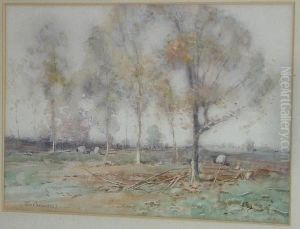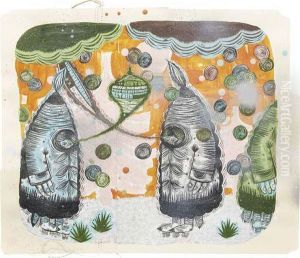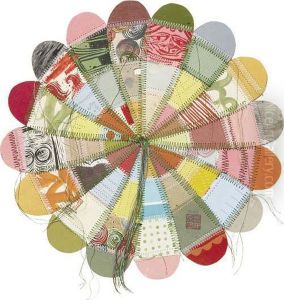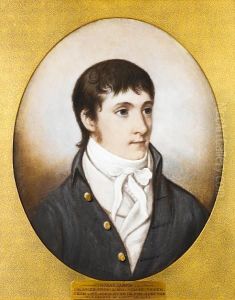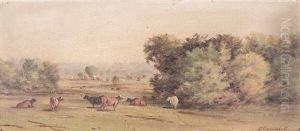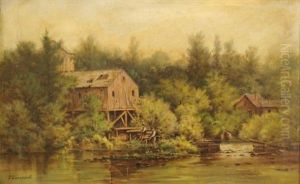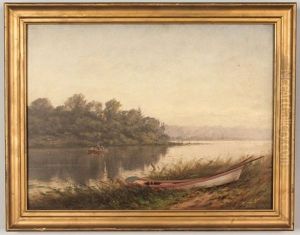Thomas Campbell Paintings
Thomas Campbell was not primarily known as a visual artist, but rather as a Scottish poet, remembered for his literary contributions during the late 18th and early 19th centuries. Born on July 27, 1777, in Glasgow, Scotland, Campbell was the youngest of the eleven children in his family. He exhibited a keen interest in literature from an early age and was educated at the Glasgow High School, followed by studies at the University of Glasgow, where he began writing poetry.
Campbell's early work, 'The Pleasures of Hope', published in 1799, brought him immediate fame. This lengthy poem, consisting of optimistic and sentimental verse, resonated with the public and critics alike during an era that was fraught with revolutionary fervor and political change. Following this success, Campbell traveled extensively through Europe, witnessing firsthand the Napoleonic Wars, which influenced his later poetry.
Throughout his career, Campbell wrote several other pieces, including 'Ye Mariners of England', a patriotic sea song, and 'The Battle of the Baltic', both of which celebrated British naval triumphs. Apart from his poetic endeavors, Campbell was also involved in the founding of the University of London, now known as University College London, in 1826. He advocated for the establishment of a new university that would be accessible to students of all religions and social backgrounds.
Campbell's interest in education and literary work extended to his support for the Polish cause against Russian domination, which is reflected in his later poems. His engagement with various social and political issues of the time showed his commitment to liberal and humanist principles. Thomas Campbell died on June 15, 1844, in Boulogne-sur-Mer, France, after a prolonged period of ill health. He left behind a legacy as a poet of the Romantic movement, with his works continuing to be celebrated for their emotional expression, lyrical quality, and nationalistic themes.
